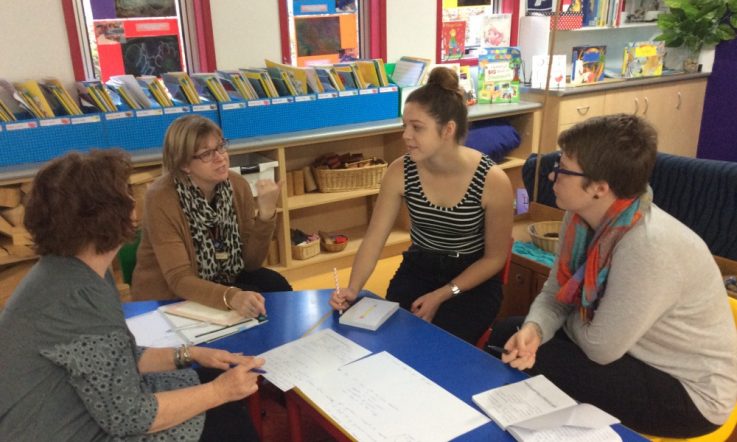Teacher education students are being asked to share what inspired them to study teaching and to consider why their peers may have been deterred away from the profession, in a nationwide survey called Future Teachers Talk.
Researchers from Swinburne University of Technology have partnered with the Australian Council of Deans of Education on the project, with support from education faculties around Australia.
Lecturer in Primary Education at Swinburne University, Dr Kristina Turner, says the national project examines why people of all ages, but especially secondary school students, are less likely to go into teaching as a career.
‘By asking those close in age and experience to secondary students for their suggestions, this study will help us to better understand what influences people to become teachers and garner fresh insights into how we can attract more people into teaching as a career,' Turner says.
The study is conducted using a crowd-sourcing technology called Crowdicity – where participants interact with each other to co-create solutions to problems posed by the researchers. The challenges are designed to stimulate innovative proposals that will tackle the important and difficult real-world issues faced by potential and current teachers.
‘We've set up three challenges for them which basically address the questions that we want to know for the study,' Turner explains.
‘So the first challenge is looking at the reasons why people shy away from teaching as a career – including why secondary school students in particular may not be taking up teaching as a career and the kinds of things that would be more likely to encourage people in general, and secondary school students specifically, to consider teaching as a career.'
The second challenge centres on the attractive features of the teaching profession and how students rise above any negativity around going into teaching. And the third challenge looks at how secondary school students could be encouraged to consider teaching, and the people who influence this decision like peers, parents, career advisors or teachers.
To respond to the challenges, participants log into the Crowdicity platform and interact with each other in a number of ways. ‘They can type text, they can respond to other people, they can upload video and audio,' Turner says.
The project is open to anyone enrolled in an initial teacher education course from any Australian university. The results from the project will be published in a professional report for the Australian Council of Deans of Education later in the year. All personal data collected throughout the project will be kept confidential but de-identified results will be shared widely, Turner says.
By taking part, Turner says participants will be contributing to the future of the profession, as well as building a strong network of likeminded peers.
‘We are really hoping to develop solutions to make teaching more attractive and recruit more people into initial teacher education courses, which we were hoping would circumvent the looming teacher shortage,' Turner says.
The discussions will run on the Crowdicity platform until the end of April 2020.
What inspired you to become a teacher? What do you think could be done to attract more young people to the teaching profession?
If you’d like to take part in the project or simply find out more, please visit the Future Teachers Talk website.



